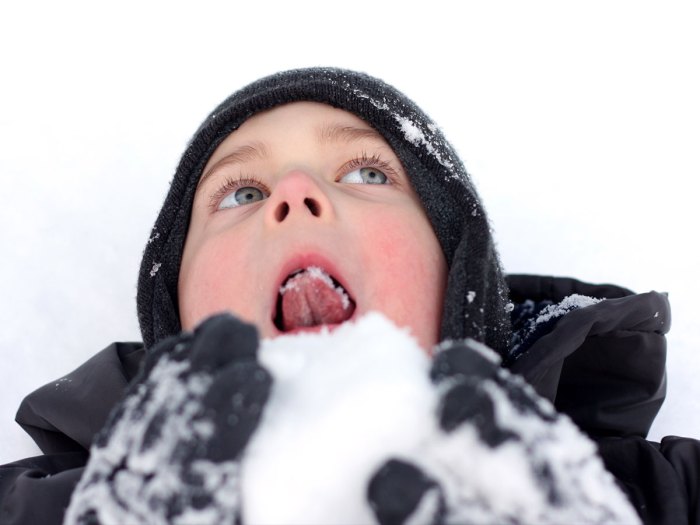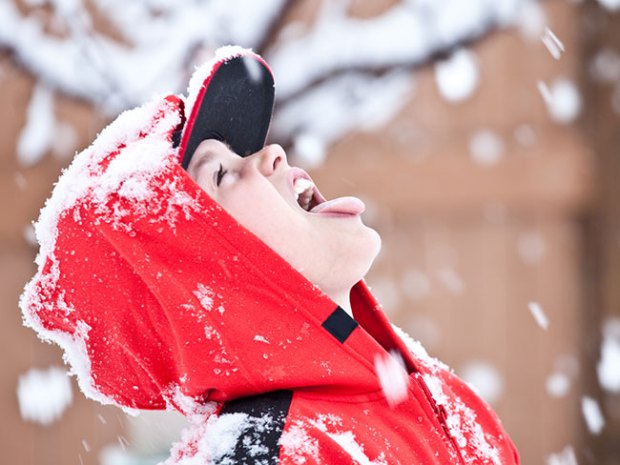Is It OK to Eat Snow?

Short answer: It depends.
The CDC’s Stay Safe During & After a Winter Storm page includes a section on what do you if you’re stranded in cold weather. Among the answers — Wrap your entire body, including your head, in extra clothing, blankets or newspapers; Stay awake, you will be less vulnerable to cold-related health problems; As you sit, keep moving your arms and legs to improve your circulation and stay warmer; — and they also warn, “Do not eat snow because it will lower your body temperature.”
But that’s assuming that you’re stranded in cold weather.
What if you’re just in your own backyard, with easy access to a heated room and warm food and beverages?
Again, it depends.
When’s the last time someone put down pesticide on your lawn? How is the air pollution in your area?
The safest way to get water from snow is to melt it in a pot over a stove, and then bring it to a boil for a few minutes to kill any harmful bacteria.
Can you eat snow? If you can find freshly fallen snow that is clean of dirt and debris and animal droppings, and if no one has put out toxic fertilizer or pesticides, and if the pollution in your area isn’t too bad, then the answer is “most likely, in small amounts, yes.”
Catching a few snowflakes on your tongue? That’s probably OK. Making ice cream out of snow? Not recommended.
Whatever you do, just make sure it isn’t yellow.

Delicious
Do not eat pink snow, either. The color is caused by a bacteria.
dirt frozen water ew
ok
like wow, i’ve been eating snow for years and it hasn’t hurt me
However did humanity survive prior to the internet to ask such questions….
Make snow ice cream!
The key quote from this article is “in small amounts”. Snow can actually cause blisters in your mouth if you eat too much. It is always best to melt snow to drink if using snow for hydration.
…and isn’t yellow
It sure would be cold!